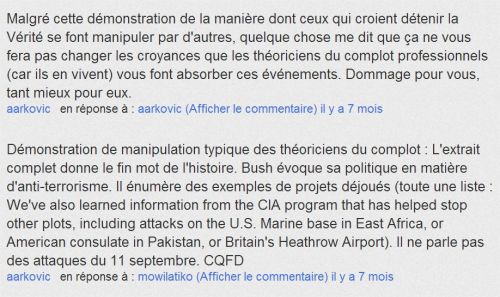Office of the Press Secretary
September 15, 2006
Press Conference of the President
On Friday, September 15, 2006, President Bush gave a press conference. Here are some excerpted highlights of the main points of the President's speech. There was also a long series of questions from the media.
John Negroponte, the Director of National Intelligence, was also interviewed on FOX News 9/17/06. Negroponte said that Article III of the Geneva Conventions must be be clarified under domestic law so that CIA interrogators won't be charged with war crimes when they use harsh interrogation tactics on important terrorists.
Here are the main points of President Bush's speech:
"There are two vital pieces of legislation in Congress now that I think are necessary to help us win the war on terror. We will work with members of both parties to get legislationthat works out of the Congress. The first bill will allow us to use military commissions to try suspected terrorists for war crimes. We need the legislation because the Supreme Court recently ruled that military commissions must be explicitly authorized by Congress. So we're working with Congress. The Supreme Court said, you must work with Congress; we are working with Congress to get a good piece of legislation out.
The bill I have proposed will ensure that suspected terrorists will receive full and fair trials, without revealing to them our nation's sensitive intelligence secrets. As soon as Congress acts on this bill, the man our intelligence agencies believe helped orchestrate the 9/11 attacks can face justice.
The bill would also provide clear rules for our personnel involved in detaining and questioning captured terrorists. The information that the Central Intelligence Agency has obtained by questioning men like Khalid Sheikh Mohammed has provided valuable information and has helped disrupt terrorist plots, including strikes within the United States.
For example, Khalid Sheikh Mohammed described the design of planned attacks of buildings inside the U.S. and how operatives were directed to carry them out. That is valuable information for those of us who have the responsibility to protect the American people. He told us the operatives had been instructed to ensure that the explosives went off at a high -- a point that was high enough to prevent people trapped above from escaping.
He gave us information that helped uncover al Qaeda cells' efforts to obtain biological weapons.
We've also learned information from the CIA program that has helped stop other plots, including attacks on the U.S. Marine base in East Africa, or American consulate in Pakistan, or Britain's Heathrow Airport. This program has been one of the most vital tools in our efforts to protect this country. It's been invaluable to our country, and it's invaluable to our allies.
Were it not for this program, our intelligence community believes that al Qaeda and its allies would have succeeded in launching another attack against the American homeland. Making us -- giving us information about terrorist plans we couldn't get anywhere else, this program has saved innocent lives. In other words, it's vital. That's why I asked Congress to pass legislation so that our professionals can go forward, doing the duty we expect them to do. Unfortunately, the recent Supreme Court decision put the future of this program in question. That's another reason I went to Congress. We need this legislation to save it.
I am asking Congress to pass a clear law with clear guidelines based on the Detainee Treatment Act that was strongly supported by Senator John McCain. There is a debate about the specific provisions in my bill, and we'll work with Congress to continue to try to find common ground. I have one test for this legislation, I'm going to answer one question as this legislation proceeds, and it's this: The intelligence community must be able to tell me that the bill Congress sends to my desk will allow this vital program to continue. That's what I'm going to ask.
The second bill before Congress would modernize our electronic surveillance laws and provide additional authority for the terrorist surveillance program. I authorized the National Security Agency to operate this vital program in response to the 9/11 attacks. It allows us to quickly monitor terrorist communications between someone overseas and someone in the United States, and it's helped detect and prevent attacks on our country.
The principle behind this program is clear: when an al Qaeda operative is calling into the United States or out of the country, we need to know who they're calling, why they're calling, and what they're planning. Both these bills are essential to winning the war on terror. We will work with Congress to get good bills out. We have a duty, we have a duty to work together to give our folks on the front line the tools necessary to protect America. Time is running out. Congress is set to adjourn in just a few weeks. Congress needs to act wisely and promptly so I can sign good legislation."

